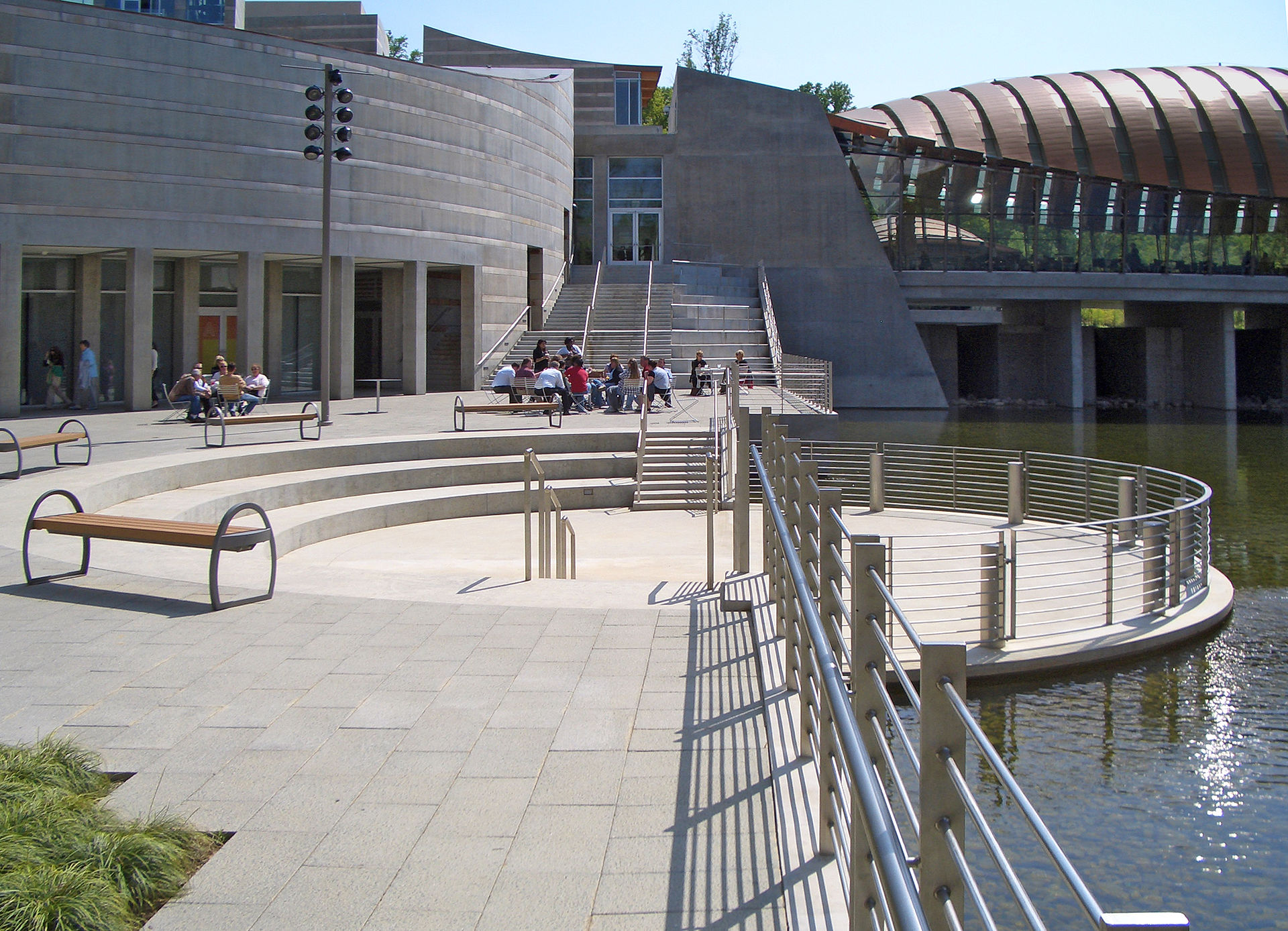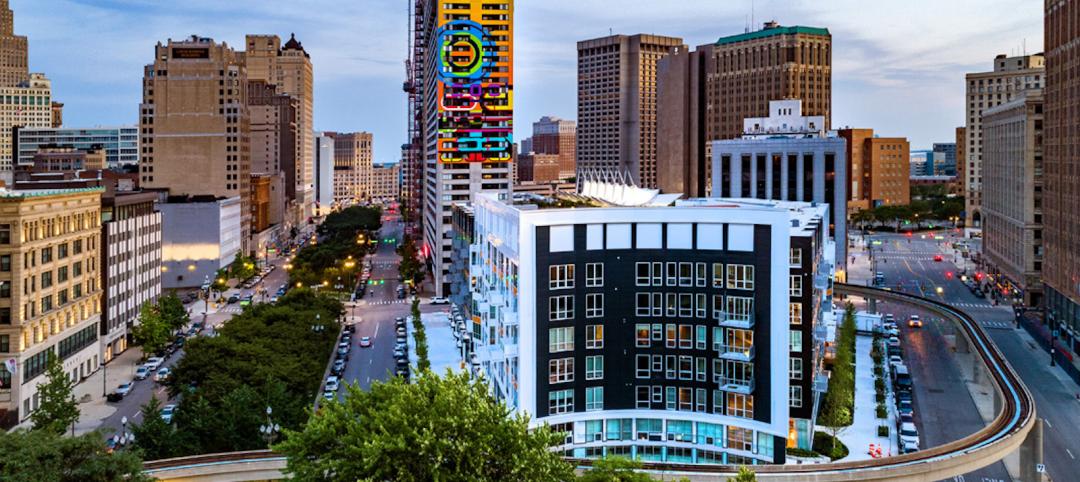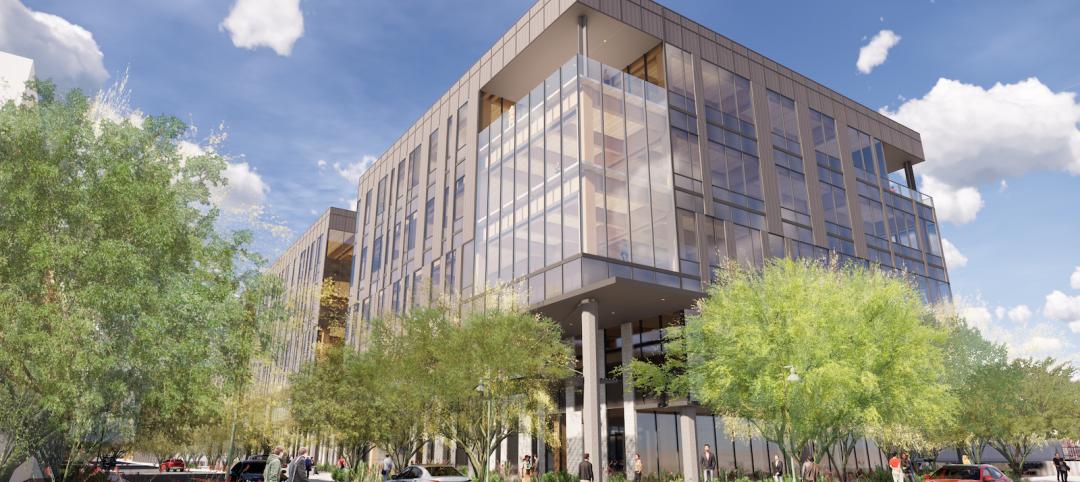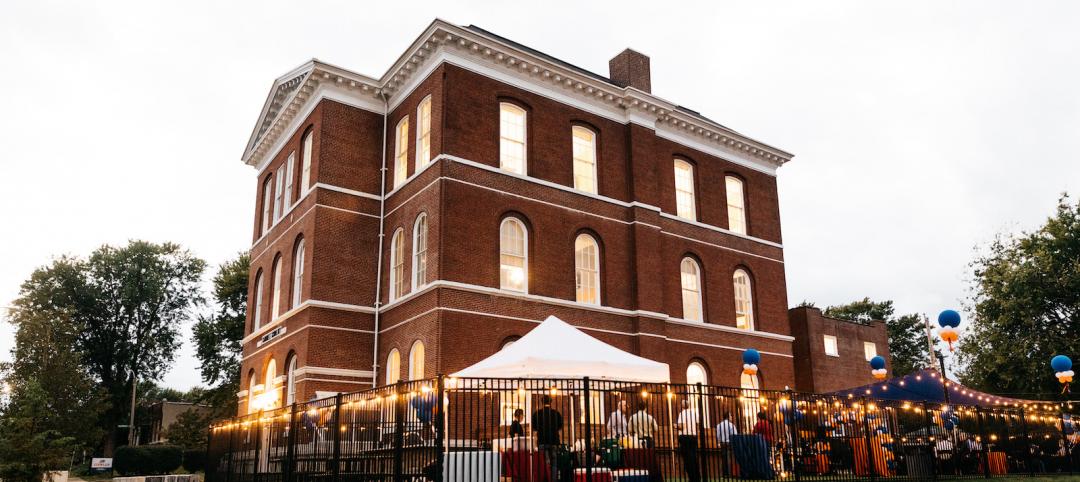The Board of Directors of the American Institute of Architects (AIA) voted to award the 2015 AIA Gold Medal to Moshe Safdie, FAIA, whose comprehensive and humane approach to designing public and cultural spaces across the world has touched millions of people and influenced generations of younger architects.
The AIA Gold Medal, voted on annually, is considered to be the profession’s highest honor that an individual can receive. The Gold Medal honors an individual whose significant body of work has had a lasting influence on the theory and practice of architecture. Safdie will be honored at the 2015 AIA National Convention in Atlanta.
Born in Haifa, Israel in 1938, Safdie moved with his family to Montreal in 1953. He studied architecture at McGill University, and after graduation worked with AIA Gold Medalist Louis Kahn, FAIA, in Philadelphia. He returned to Montreal to work on Habitat ’67, for Montreal’s 1967 World’s Fair, which consisted of a series of 158 stacked and terraced apartments.
Safdie then began a series of teaching posts that culminated with his appointment as the director of the urban design program at the Harvard Graduate School of Design from 1978-84. Since 1978, Safdie has been based in Boston while remaining a citizen of Israel, Canada, and the United States. Safdie established a Jerusalem office in 1970 and another in Shanghai in 2011.
Many of Safdie’s Asian and Middle Eastern projects exhibit a sense of timelessness closely associated with his mentor, Kahn. Safdie once told Tablet Magazine that if architecture is good, “then it will feel obvious, and like it’s always been there.” In Israel, his Mamilla Center blends in contextually and materially with a 19th century Jerusalem neighborhood, offering people range of dynamic gathering spaces and enhancing the contemporary urban experience.
In Punjab, India, his design for the Khalsa Heritage Centre (a museum of Sikh history and culture) shows visitors an elemental juxtaposition of stone and concrete with water. The building is made up of a rich mix of orthogonal geometry and curvilinear forms, organic and flowing in some places and rigid and rational in others. This mixture alludes to the primeval determination the earliest builders felt when they conspired to put together posts, lintels and right angles in defiant opposition to gravity, and also the natural world they struggled to endure against.
This is a pattern seen throughout Safdie’s architecture: the broad, explicit combination of grid-based forms with fluid curves. Safdie’s work naturally melds opposing forms— fusing arcs into squares, spheres into cubes, and ovals into rectangles—to create emotionally evocative architecture.
In her nomination letter, Boston Society of Architects president Emily Grandstaff-Rice, AIA, wrote: “Moshe Safdie has continued to practice architecture in the purest and most complete sense of the word, without regard for fashion, with a hunger to follow ideals and ideas across the globe in his teaching, writing, practice and research.”
Some of Safdie’s most notable works include:
The Salt Lake City Main Public Library, a triangular glass library intersected by a crescent-shaped wall which forms an urban room and leads visitors up to an observation deck with views of the nearby Wasatch Mountains. The transparency offered by the glass library volume and the gracefully arcing wall and public space it forms evokes a dramatic contrast of enclosure and openness.
The Yad Vashem Holocaust History Museum in Jerusalem, a concrete prism carved into Mt. Herzl that takes visitors on a linear, narrative journey that explores the individual identities of Holocaust victims, finally giving way to an observation deck with broad views of Jerusalem below, symbolizing the collective future of the Jewish people.
Marina Bay Sands in Singapore is a high-density urban district that serves as a gateway to Singapore, anchors the Singapore waterfront, and provides a dynamic setting for a vibrant public life. The project’s most dramatic feature is the 3-acre SkyPark, which connects the hotel’s three 55-storey towers at the top, spanning from tower to tower and cantilevering 213 feet beyond. Its mixed-use program (theater, museum, hotel, convention center) makes it nearly a city unto itself.
The Crystal Bridges Museum of American Art in Bentonville Ark., an idyllic village of copper-clad shells containing American art. This village of forms creates a series of dams and bridges over a reservoir fed by nearby Crystal Springs, intimately revealing the natural landscape and huddling around the water like a group of timeworn river stones.
Safdie is the 71st AIA Gold Medalist. He joins the ranks of such visionaries as Thomas Jefferson (1993), Frank Lloyd Wright (1949), Louis Sullivan (1944), Le Corbusier (1961), Louis I. Kahn (1971), I.M. Pei (1979), Thom Mayne (2013), and Julia Morgan (2014). In recognition of his legacy to architecture, his name will be chiseled into the granite Wall of Honor in the lobby of the AIA headquarters in Washington, D.C.
Related Stories
Architects | Feb 28, 2022
JLL continues expansion in Southwest with acquisition of San Diego’s Gilliland Construction Management
JLL announced that it has completed the acquisition of Gilliland Construction Management, a leader in project and construction management services for life sciences, lab, retail, hospitality, industrial, multifamily, and office properties.
Codes and Standards | Feb 24, 2022
Most owners adapting digital workflows on projects
Owners are more deeply engaged with digital workflows than other project team members, according to a new report released by Trimble and Dodge Data & Analytics.
Multifamily Housing | Feb 24, 2022
First new, mixed-use high-rise in Detroit’s central business district in nearly 30 years opens
City Club Apartments completed two multifamily projects in 2021 in downtown Detroit including the first new, mixed-use high-rise in Detroit’s central business district in nearly 30 years.
| Feb 24, 2022
Signs of ‘Antiwork’ appear in the architecture industry
Reddit's r/Antiwork forum highlights the mounting pressures everyday workers face in a purely capitalistic society. AEC industry professionals are not immune to these pressures.
Office Buildings | Feb 23, 2022
The Beam on Farmer, Arizona’s first mass timber, multi-story office building tops out
The Beam on Farmer, Arizona’s first mass timber, multi-story office building, topped out on Feb. 10, 2022.
Codes and Standards | Feb 21, 2022
More bad news on sea level rise for U.S. coastal areas
A new government report predicts sea levels in the U.S. of 10 to 12 inches higher by 2050, with some major cities on the East and Gulf coasts experiencing damaging floods even on sunny days.
Wood | Feb 18, 2022
$2 million mass timber design competition: Building to Net-Zero Carbon (entries due March 30!)
To promote construction of tall mass timber buildings in the U.S., the Softwood Lumber Board (SLB) and USDA Forest Service (USDA) have joined forces on a competition to showcase mass timber’s application, commercial viability, and role as a natural climate solution.
University Buildings | Feb 18, 2022
On-campus performing arts centers and museums can be talent magnets for universities
Cultural facilities are changing the way prospective students and parents view higher education campuses.
University Buildings | Feb 17, 2022
A vacated school in St. Louis is turned into a center where suppliers exchange ideas
In 1871, The Carondelet School, designed by Frederick William Raeder, opened to educate more than 400 children of laborers and manufacturers in St. Louis. The building is getting a second lease on life, as it has undergone a $2 million renovation by goBRANDgo!, a marketing firm for the manufacturing and industrial sectors.
Data Centers | Feb 15, 2022
Data center boom: How two AEC firms plan to meet unprecedented demand for data center facilities
Ramboll's Jim Fox and EYP Mission Critical Facilities' Rick Einhorn discuss the recent joining of their companies at a time of unprecedented data center demand. BD+C's John Caulfield leads the discussion with Fox, Ramboll's Managing Director for the Americas, and Einhorn, EYP Mission Critical Facilities' Managing Director.

















